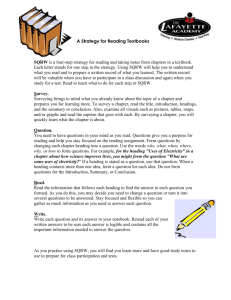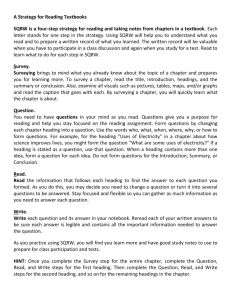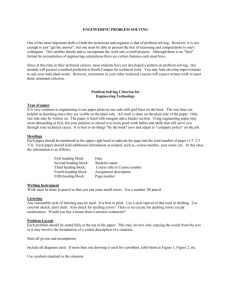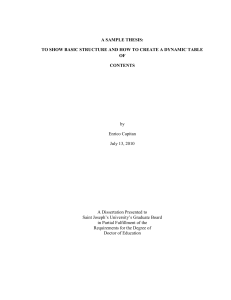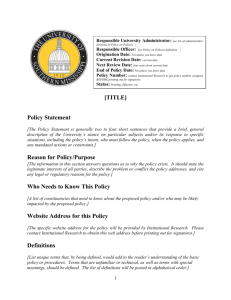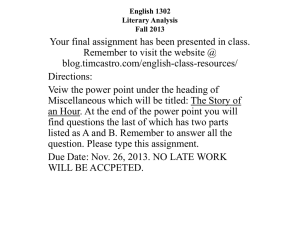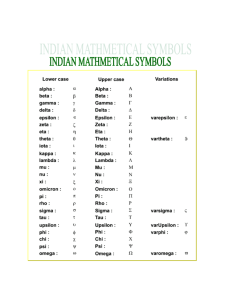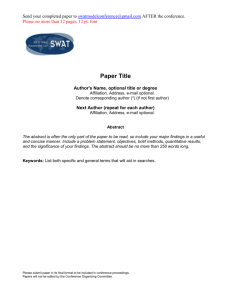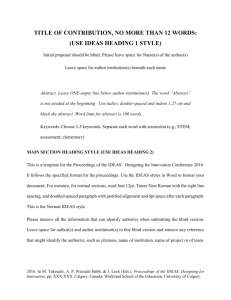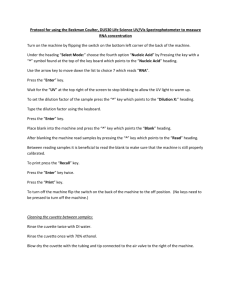Anatomy of an Accessible Syllabus
advertisement
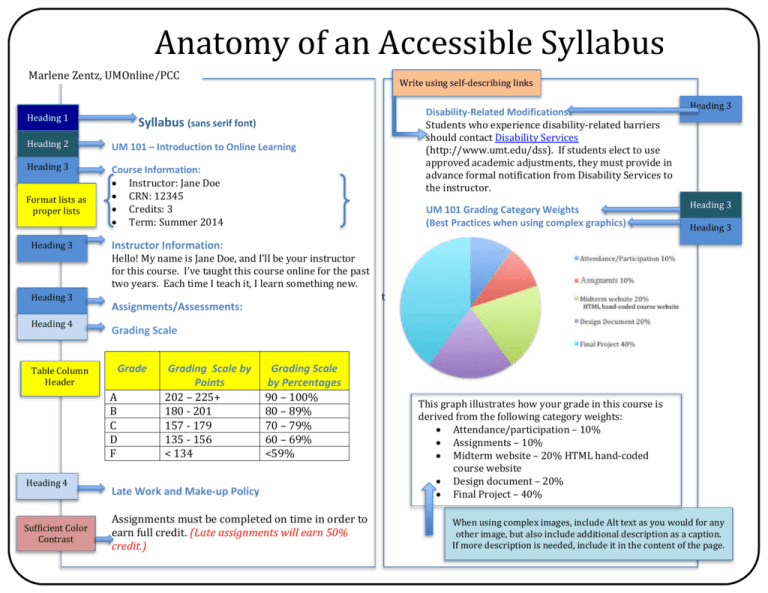
Anatomy of an Accessible Syllabus Marlene Zentz, UMOnline/PCC Heading 1 Heading 2 h Heading 3 tt h p tt :/ Format lists as / proper lists p :/ w / w Heading 3 w w .u w m .u t. Heading 3 m e t. d Heading 4 e u d / u d Table Column/ s Header d s /s hs / tt h p tt :/ p / :/ w Heading 4 / w w w .u Sufficient Color w m Contrast .u t. m e t. d e u Write using self-describing links t Disability-Related Modifications: Students who experience disability-related barriers should contact Disability Services (http://www.umt.edu/dss). If students elect to use approved academic adjustments, they must provide in advance formal notification from Disability Services to the instructor. Syllabus (sans serif font) UM 101 – Introduction to Online Learning Course Information: Instructor: Jane Doe CRN: 12345 Credits: 3 Term: Summer 2014 UM 101 Grading Category Weights (Best Practices when using complex graphics) Heading 3 Heading 3 Heading 3 Instructor Information: Hello! My name is Jane Doe, and I’ll be your instructor for this course. I’ve taught this course online for the past two years. Each time I teach it, I learn something new. t Assignments/Assessments: Grading Scale Grade A B C D F Grading Scale by Points 202 – 225+ 180 - 201 157 - 179 135 - 156 < 134 Grading Scale by Percentages 90 – 100% 80 – 89% 70 – 79% 60 – 69% <59% Late Work and Make-up Policy Assignments must be completed on time in order to earn full credit. (Late assignments will earn 50% credit.) This graph illustrates how your grade in this course is derived from the following category weights: Attendance/participation – 10% Assignments – 10% Midterm website – 20% HTML hand-coded course website Design document – 20% Final Project – 40% When using complex images, include Alt text as you would for any other image, but also include additional description as a caption. If more description is needed, include it in the content of the page.
